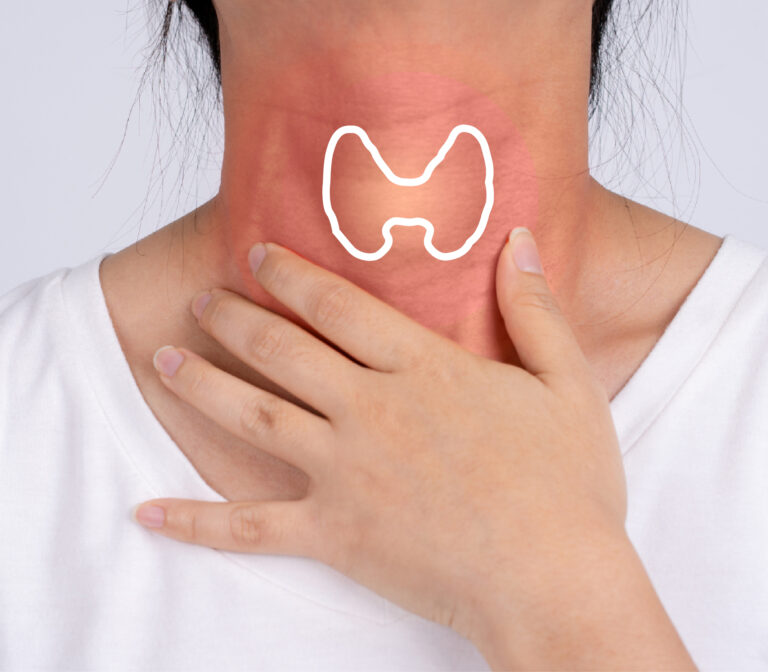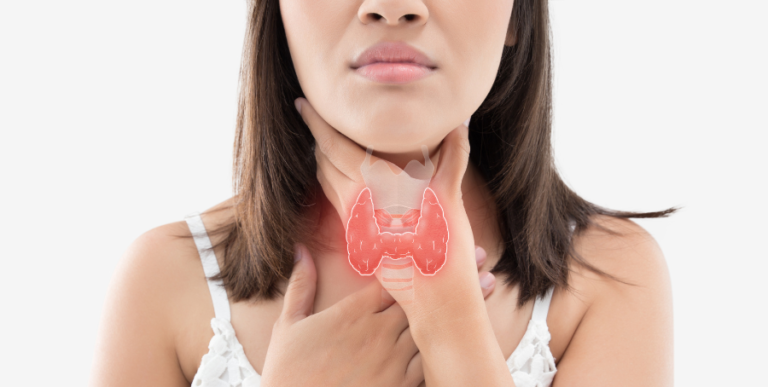We are all too familiar with the ‘food baby’: the tight pinching of the waist after a heavy meal, the urge to unbutton your pants and lie down on the couch while sweet sleep beckons you.
Usually, bloating is nothing more than the effects of a good meal. However, this is not the only possible cause, as it can also be due to other underlying serious medical conditions. After all, our gastrointestinal system is complex, and many factors could create bloating.
Is your bloating normal or indicative of something more? Read on to find out more about the difference between occasional bloating and persistent bloating, and when you should see a doctor.
Table of Contents
ToggleWhat is Abdominal Bloating?
Abdominal bloating occurs when your gastrointestinal tract is filled with too much air or fluid, causing a feeling of tightness or pain in the stomach. This can give your stomach a distended appearance.
There are many causes for abdominal bloating, some more concerning than others. Bloating that disappears within a few hours is typically due to dietary habits or temporary changes to the body. In such instances, the bloating will resolve on its own without the need for any medical intervention. Possible explanations include:
Eating too fast
When we eat too fast, we swallow more air, which causes gas to build up in the gastrointestinal tract.
Our saliva contains an enzyme called amylase which helps to break down the carbohydrates (sugar) in our food. When we eat too fast or are not mindful about how we’re eating, there is not enough time for the saliva to break down most of the carbohydrates. This means that the stomach and small intestines have to work harder to digest more sugar. This process creates gas, hence you may feel bloated and sluggish.
Dietary habits
Carbonated and alcoholic drinks contain a huge amount of carbon dioxide, which gets trapped in the stomach, creating uncomfortable pressure. Certain foods like beans, wheat, and broccoli contain small carbohydrates known as FODMAP (fermentable oligo-, di-, mono-saccharides and polyols). Because of their small size, they can escape digestion by the small intestines. As they reach the large intestines, the bacteria act on them via a special process called fermentation, which releases gas as a byproduct.
Highly processed food comes with a high salt content, which contains a chemical called sodium. It stimulates the body to retain more water, which can make your body feel bloated and heavy.
You could also be unconsciously consuming food that you are sensitive or intolerant to. This means that your body cannot digest and absorb certain chemicals, resulting in bloating, cramping, and diarrhoea.
Constipation
Constipation can be indicated by difficulty in starting or finishing a bowel movement, and not feeling empty after it. The longer the stool stays in the colon, the more time the bacteria can ferment it, releasing more gas. Not only that, the build-up of the stool also blocks newly digested contents from passing through the gastrointestinal tract, making your abdomen feel tight and full.
Menstrual cycle
Many women may experience bloating before and during their period. As the body prepares for the shedding of the uterine lining, the progesterone level falls. This will cause the body to retain more water, which explains the bloating.
During your period, there is more blood flow to the pelvis, enlarging the pelvic veins which could create abdominal tightness. Beyond that, as more blood flows to the pelvic floor, less is directed to the gastrointestinal tract, slowing down gut mobility. This can also explain why some women experience constipation during their periods.
Weight gain
When you gain weight, the abdominal area is the first place to accumulate fat. As the fat deposits and presses against the abdominal organs, there is less room for proper digestion, causing constipation and bacteria fermentation.
What Are Some Medical Conditions Associated With Bloating?
If your bloating persists for days and is accompanied by other symptoms like fever, vomiting or diarrhoea, it could indicate a more serious medical condition. Some of the more common ones include:
Celiac Disease
Celiac disease is an autoimmune condition from a gluten allergy. Gluten is a protein in wheat, barley, and rye. When people with gluten sensitivity consume it, their immune system attacks the villi (tiny protrusions) on the small intestines. This hinders the ability of the small intestines to absorb nutrients, causing malnutrition and weight loss. As the small intestines cannot digest food properly, the undigested food accumulates and ferments, producing gas and abdominal pain.
Irritable bowel syndrome (IBS)
IBS is a chronic condition that includes a combination of symptoms that affects the stomach and intestines. These include bloating, abdominal pain, vomiting, nausea, diarrhoea, and/or constipation. For some people, they may also experience non-intestinal symptoms such as headaches, anxiety, and insomnia.
There is no exact cause for IBS, though it is often an accompanying condition to other issues ranging from food intolerance, infection, gastroparesis, chronic stress, to cancer.
Small intestinal bacterial overgrowth (SIBO)
SIBO is characterised by excessive bacteria in the intestines. Patients experience diarrhoea, weight loss, bloating, and abdominal pain.
A healthy gut has a balanced amount of bacteria to break down food. When this balance is disrupted, other important chemicals like bile salts, which are needed to digest fats, get digested too. In addition, too many bacteria can destroy the inner lining of the small intestines. Together, these 2 effects could lead to malabsorption, causing weight loss and other health deficiencies.
What could trigger SIBO? Constipation, gastroparesis (gastrointestinal muscles do not contract normally), or structural deficiencies can slow down the travel of food and waste products. This creates the optimal breeding ground for bacteria growth. Another reason could be our body’s inability to remove these excess bacteria, either from immunodeficiency disorders or medications like antibiotics that alter gut microbiota levels.
Infection
Infection can lead to inflammation in the stomach (gastritis) or intestines (enteritis), disrupting the normal movement of food through the body. Consequently, bacteria fermentation or stool accumulation in the colon increases the risk of painful bloating.
Certain bacterial infections can affect the healthy gut environment. For example, H. pylori infection reduces acid production in the stomach. Without an acidic medium, bacteria can thrive and grow in the intestinal tract, causing serious complications.
Inflammatory bowel disease (IBD)
IBD is the inflammation of the digestive tract. There are 2 types:
- Ulcerative colitis: inflammation in the large intestines
- Crohn’s disease: inflammation in any part of the digestive tract, from the mouth to the anus. It is more common in the small intestines.
As with other gastrointestinal problems, IBD changes bowel movements and induces bloating. More symptoms include abdominal pain, weight loss, fever, and blood in stool.
Cancer
The growth of a tumour along the tract obstructs food and other waste materials, which are causes for bloating. Since bloating is a non-specific symptom, more tests are required to accurately diagnose these types of gastrointestinal cancer:
- Colon cancer: Tumour blocking the colon could prevent stool from passing out the body, which can make you feel tight and bloated. It is typically accompanied by other symptoms such as rectal bleeding.
- Stomach cancer: This can affect the normal digestion and movement of food through the gastrointestinal tract, which is a common cause of bloating.
- Liver cancer: The enlargement of the liver and the fluid accumulation (ascites) around the abdomen gives the appearance of a distended stomach, abdominal pain, and jaundice (yellowing of the skin).
- Ovarian cancer: Ovarian cysts press against the surrounding organs in the abdomen, causing a feeling of fullness. Hormonal changes can also increase fluid retention.
When Should I See A Doctor?
Clearly, abdominal bloating is a vague common symptom that can be part of a myriad of problems. Most of the time, bloating disappears on its own. However, if bloating persists and is accompanied by any of such symptoms, it could indicate a more serious medical condition:
- Abdominal pain that gets progressively worse
- Nausea
- Vomiting
- Diarrhoea
- Blood in stool
- Fever
In such cases, it may not be as simple as eating too much or too fast. Get an appointment with your doctor as soon as possible. The earlier a condition is detected, the faster it can be resolved.
What Is The Diagnostic Process Like?
During the medical consultation, the doctor will conduct a series of tests to eliminate conditions related to bloating until they find a diagnosis. Some of the tests include:
- Blood test: To test for infection or genetic conditions such as celiac disease
- Endoscopy: It involves the insertion of an endoscope, which is a flexible tube with a camera that enables the doctor to inspect the gastrointestinal tract for signs of infection, tumour, or other abnormalities. A biopsy, which is the extraction of a small tissue sample, is required for further testing.
- Stool test: A sample of stool is collected and tested for abnormalities such as bacteria, parasites, or blood for infection, gastrointestinal bleeding or other conditions.
Do communicate any discomfort or preferences with your doctor – they are more than willing to adjust any part of the process to make it a comfortable experience for you.
Treatment and Prevention Tips
While occasional bloating may not be a serious condition, it can still be frustrating or uncomfortable to deal with it every day. Thankfully, there are some modifications or healthy habits that you can incorporate into your life to ease the discomfort:
Dietary modifications
Avoid carbonated drinks and foods with high FODMAP. Instead, opt for herbal teas such as peppermint and ginger to help relieve bloating and relax your intestinal muscles for a smoother bowel movement. Of course, water is always a good option.
To avoid excessive water retention, minimise salty and highly processed foods with high sodium levels. Instead, increasing your potassium intake like bananas, potatoes, avocados, yoghurt and fish can stimulate your body to release more water via urine.
Lifestyle changes
Exercise or weight management is a good way to improve gut mobility and expel excess water through sweat. Try to incorporate at least 30 minutes of moderate to vigorous exercise per day. You can always start with something less intense such as walking or swimming and increase the difficulty once you are more comfortable.
Another important habit is to practice mindful eating. Too often we multitask while eating: we’re either on our phones, working, or just rushing through our meals. However, a healthy gut goes a long way towards improving your performance in other areas of life. Leave out 20 minutes to just eat – chew each bite thoroughly before swallowing.
Medication
For bloating caused by constipation, taking some over-the-counter laxatives will stimulate gut mobility.
If you have SIBO or gut bacteria imbalances, probiotics are a good option for you. They reintroduce healthy gut bacteria, which helps improve digestion and absorb excess gasses.
For women who experience severe pain and bloating during their periods, taking hormonal pills may relieve some of these symptoms. However, talk to your doctor about whether you are suitable for this treatment first.
Conclusion
Abdominal bloating is a vague symptom that varies in severity. If you also experience other effects like fever, vomiting, weight loss, or abdominal pain, there is a higher chance that you have a more serious condition.
If you are unsure of what could be causing your discomfort, book an appointment at the Centre of Screening and Surgery for a diagnosis today!





